Mexican general election, 1994 on:
[Wikipedia]
[Google]
[Amazon]
General elections were held in
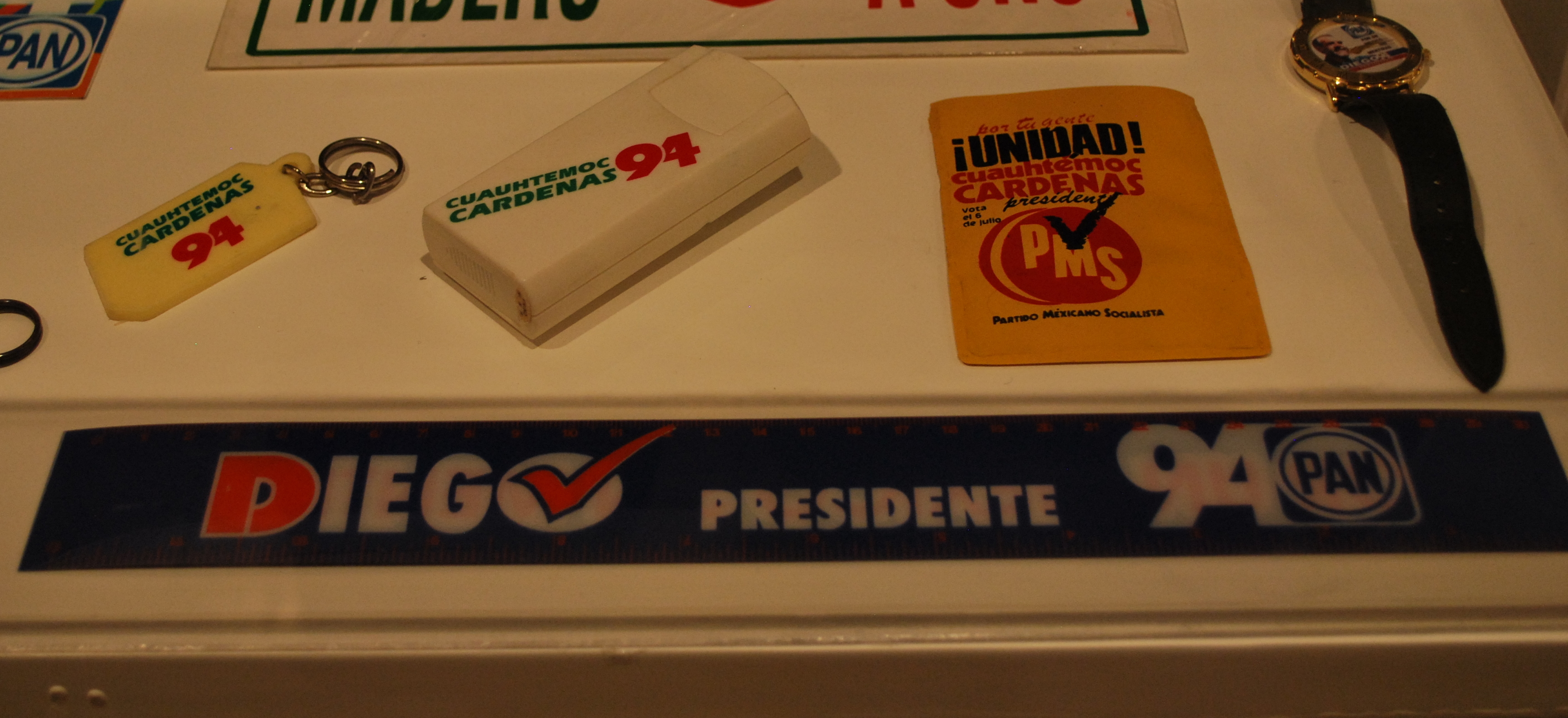 Outgoing President
Outgoing President
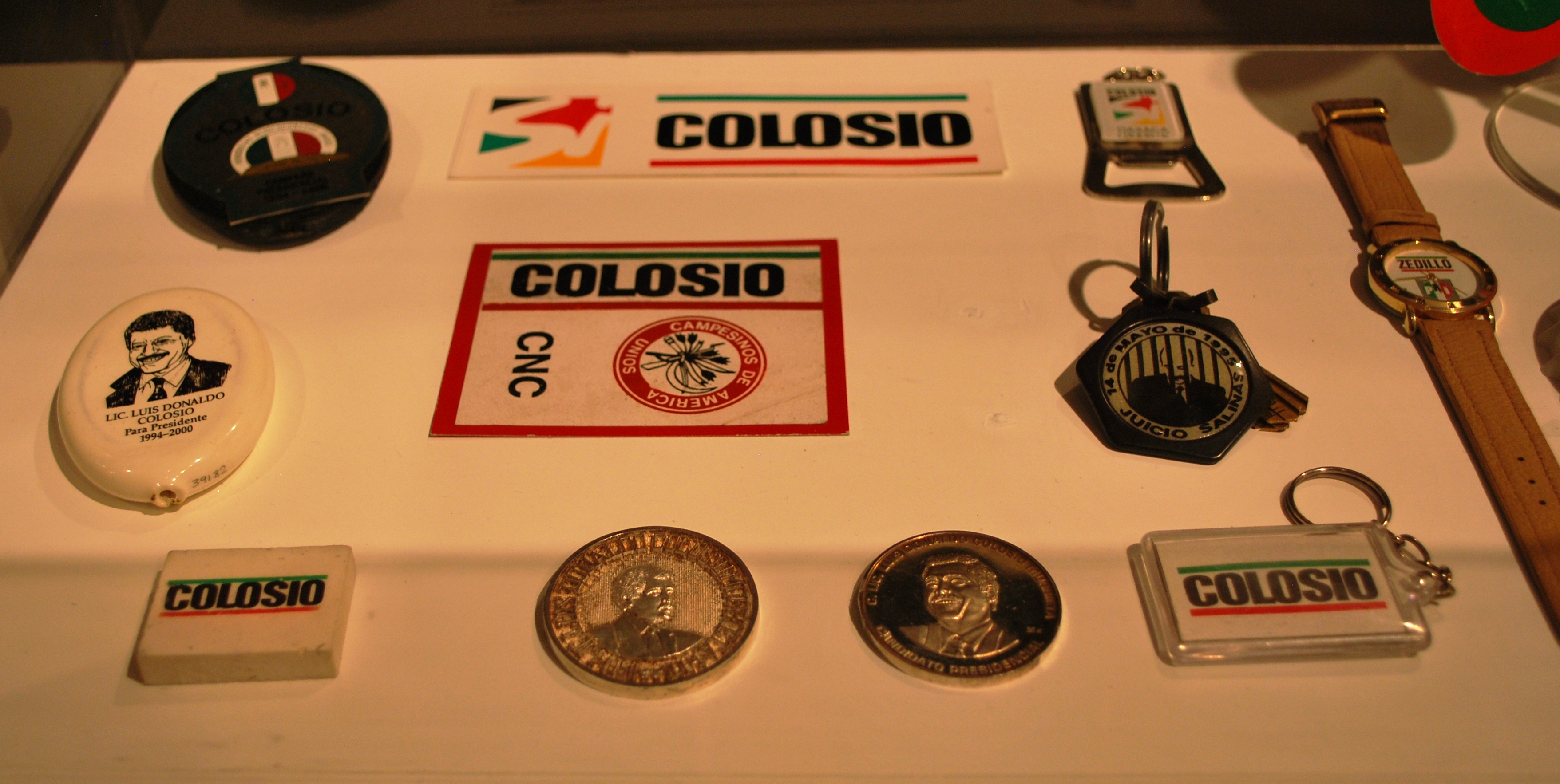
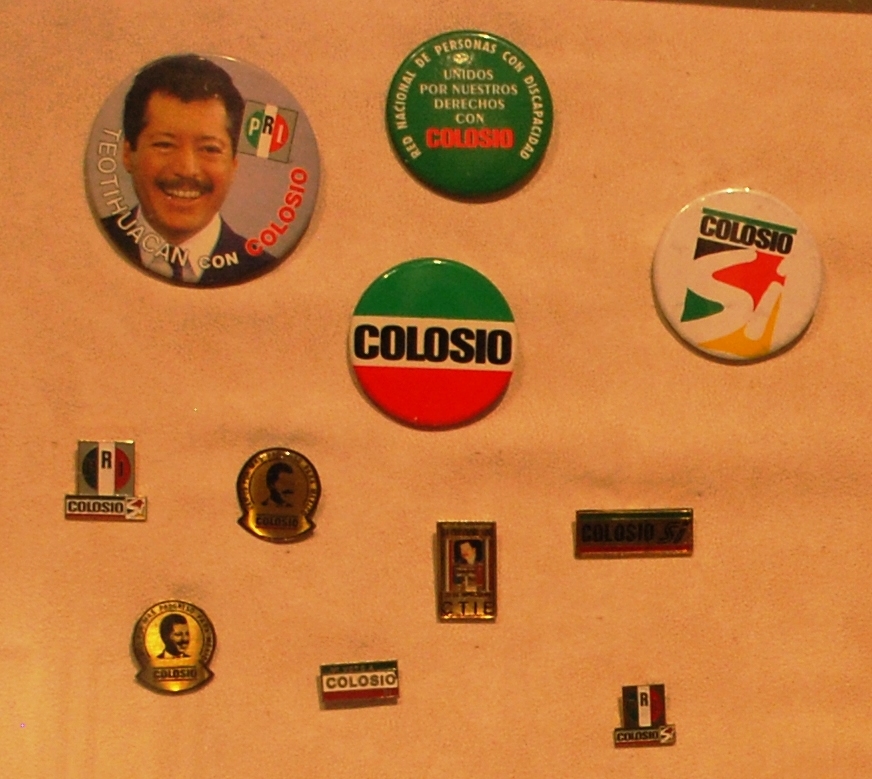 In the initial months of the campaign, PRI candidate Colosio expressed dissatisfaction with his campaign management, as polls indicated his popular support was far lower than earlier PRI candidates. Colosio's campaign lacked funding and had problems getting media coverage in the wake of the
In the initial months of the campaign, PRI candidate Colosio expressed dissatisfaction with his campaign management, as polls indicated his popular support was far lower than earlier PRI candidates. Colosio's campaign lacked funding and had problems getting media coverage in the wake of the
/ref> On 22 March, Camacho himself stated that he was not interested in being the PRI candidate, instead focusing on the Chiapas conflict. The day after Camacho's statement, Colosio was killed.
 At 5:05 PM PST on 23 March, at a campaign rally in Lomas Taurinas, a poor neighborhood of
At 5:05 PM PST on 23 March, at a campaign rally in Lomas Taurinas, a poor neighborhood of
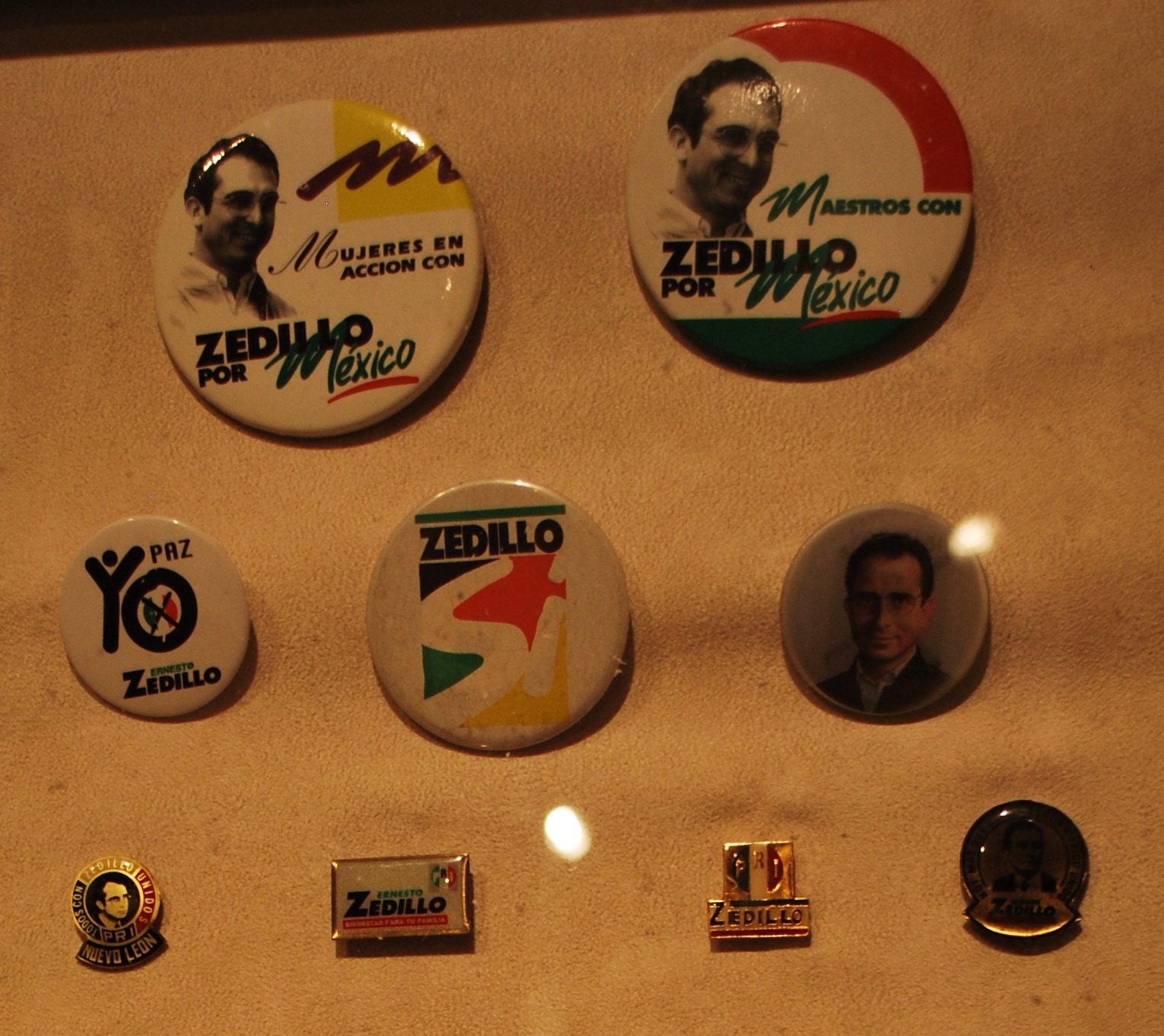

 President Salinas declared three days of national mourning after Colosio's death, while all the opposition candidates lamented the assassination and called for an end to political violence.
In the aftermath, many PRI members sought to replace the dead candidate. In the end, President Salinas chose
President Salinas declared three days of national mourning after Colosio's death, while all the opposition candidates lamented the assassination and called for an end to political violence.
In the aftermath, many PRI members sought to replace the dead candidate. In the end, President Salinas chose
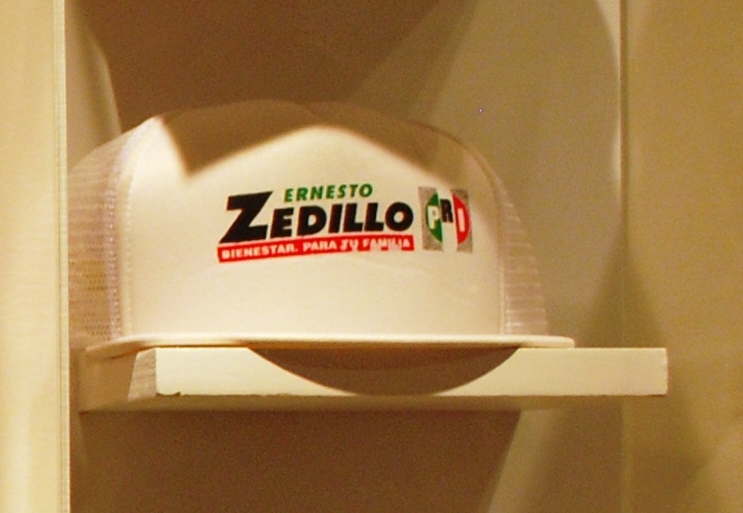
 For the first time in Mexican history, the 1994 campaign featured televised debates between the Presidential candidates. On 12 May, the three main contenders Zedillo, Fernández de Cevallos, and Cárdenas participated in the first Presidential debate in Mexican history. An estimated audience of 34 million watched the debate. Polls after the debate indicated that the PAN candidate, Diego Fernández de Cevallos, had defeated the other two candidates, and had become capable of defeating the PRI candidate in the elections.
A phone survey carried out by the ''Oficina de la Presidencia de la República Mexicana'' after the debate shows the widespread perception of Cevallos' victory in the debate, as well as Zedillo's lackluster performance and the appalling reception of Cárdenas' performance:
However, in the aftermath of the debate, Fernández de Cevallos seemed to decrease his media presence, and Zedillo continued in the first place at the polls; on the other hand, the polls also indicated that Zedillo might win with less than 50% of the popular vote, something unprecedented for a PRI candidate (notwithstanding previous controversial elections in which the PRI was accused of fraud).
After the 12 May debate between the main three contenders, there was also a debate between the Presidential candidates of smaller parties.
For the first time in Mexican history, the 1994 campaign featured televised debates between the Presidential candidates. On 12 May, the three main contenders Zedillo, Fernández de Cevallos, and Cárdenas participated in the first Presidential debate in Mexican history. An estimated audience of 34 million watched the debate. Polls after the debate indicated that the PAN candidate, Diego Fernández de Cevallos, had defeated the other two candidates, and had become capable of defeating the PRI candidate in the elections.
A phone survey carried out by the ''Oficina de la Presidencia de la República Mexicana'' after the debate shows the widespread perception of Cevallos' victory in the debate, as well as Zedillo's lackluster performance and the appalling reception of Cárdenas' performance:
However, in the aftermath of the debate, Fernández de Cevallos seemed to decrease his media presence, and Zedillo continued in the first place at the polls; on the other hand, the polls also indicated that Zedillo might win with less than 50% of the popular vote, something unprecedented for a PRI candidate (notwithstanding previous controversial elections in which the PRI was accused of fraud).
After the 12 May debate between the main three contenders, there was also a debate between the Presidential candidates of smaller parties.
Mexico
Mexico (Spanish: México), officially the United Mexican States, is a country in the southern portion of North America. It is bordered to the north by the United States; to the south and west by the Pacific Ocean; to the southeast by Guatema ...
on 21 August 1994. Nohlen, D (2005) ''Elections in the Americas: A data handbook, Volume I'', p453 The presidential elections resulted in a victory for Ernesto Zedillo
Ernesto Zedillo Ponce de León (; born 27 December 1951) is a Mexican economist and politician. He was 61st president of Mexico from 1 December 1994 to 30 November 2000, as the last of the uninterrupted 71-year line of Mexican presidents from t ...
of the Institutional Revolutionary Party
The Institutional Revolutionary Party ( es, Partido Revolucionario Institucional, ; abbr. PRI) is a political party in Mexico that was founded in 1929 and held uninterrupted power in the country for 71 years, from 1929 to 2000, first as the Nati ...
(PRI), whilst the PRI won 300 of the 500 seats in the Chamber of Deputies and 95 of the 128 seats in the Senate. Voter turnout ranged from 77.4% in the proportional representation section of the Chamber elections to 75.9% in the constituency section.
These were the first presidential elections in Mexico that were monitored by international observers. Turnout was just over 77% of those eligible. To date, the 1994 elections mark the last time a presidential candidate won in all 31 states and Mexico City
Mexico City ( es, link=no, Ciudad de México, ; abbr.: CDMX; Nahuatl: ''Altepetl Mexico'') is the capital city, capital and primate city, largest city of Mexico, and the List of North American cities by population, most populous city in North Amer ...
.
Although tension did not reach the level it did around the 1988 election, most political analysts agree that voters (in the aftermath of the Zapatista uprising
On January 1, 1994, the Zapatista Army of National Liberation (EZLN) coordinated a 12-day Zapatista uprising in the state of Chiapas, Mexico in protest of NAFTA's enactment. The revolt gathered international attention.
Background
Disease, ensl ...
that began in January and the assassination of the original PRI candidate Luis Donaldo Colosio
Luis Donaldo Colosio Murrieta (; 10 February 1950 – 23 March 1994) was a Mexican politician, economist, and Institutional Revolutionary Party (PRI) presidential candidate, who was assassinated at a campaign rally in Tijuana during the Mexic ...
), opted for continuity by allowing the PRI to remain in power, fearing that the country might otherwise be destabilized. While the election itself was generally considered clean, with no major irregularities, there was much criticism directed at the inequity of the campaigns, with the ruling PRI having a disproportionate advantage in regards to campaign financing and mass media exposure.
Background
The 1994 election took place in an atmosphere of political instability after the rise of theZapatista Army of National Liberation
The Zapatista Army of National Liberation (, EZLN), often referred to as the Zapatistas (Mexican ), is a far-left political and militant group that controls a substantial amount of territory in Chiapas, the southernmost state of Mexico.
Since ...
(EZLN) on 1 January that year. The insurgency was a serious hit on the image that the Government wanted to portray of a developed, advanced country, and it highlighted the negative effects of the neoliberal reforms enacted by the Salinas administration.
In the past six years, the right-wing opposition Partido Acción Nacional (PAN) had won many state elections, and was seen as a serious contender for the presidency in 1994. On the other hand, the left-wing Partido de la Revolucion Democratica (PRD), while building a wide social base, had failed to win any state governorship, which its leaders blamed on repression and electoral fraud by the PRI-controlled federal government.
Campaign
Nominations
Carlos Salinas de Gortari
Carlos Salinas de Gortari CYC DMN (; born 3 April 1948) is a Mexican economist and politician who served as 60th president of Mexico from 1988 to 1994. Affiliated with the Institutional Revolutionary Party (PRI), earlier in his career he wor ...
chose his Secretary of Social Development, Luis Donaldo Colosio
Luis Donaldo Colosio Murrieta (; 10 February 1950 – 23 March 1994) was a Mexican politician, economist, and Institutional Revolutionary Party (PRI) presidential candidate, who was assassinated at a campaign rally in Tijuana during the Mexic ...
, to be the PRI presidential candidate. Salinas' choice sparked a brief internal conflict in the government, as Manuel Camacho Solís
Víctor Manuel Camacho Solís (March 30, 1946 – June 5, 2015) was a Mexican politician who served in the cabinets of presidents Miguel de la Madrid and Carlos Salinas. Born in Mexico City to Manuel Camacho López and Luz Solís, he belonged ...
, who was then Mayor of Mexico City, had expected himself to be the PRI candidate, and quit his position in protest. President Salinas immediately appointed Camacho as Minister of Foreign Relations to hide the conflict, and tried to appease him. In the aftermath of the Zapatista uprising, Camacho was designated Peace Commissioner in Chiapas.
The PAN chose Diego Fernández de Cevallos as their candidate through an internal convention.
Cuauhtémoc Cárdenas
Cuauhtémoc Cárdenas Solórzano (; born 1 May 1934) is a Mexican prominent politician. The son of 51st President of Mexico Lázaro Cárdenas, he is a former Head of Government of Mexico City and a founder of the Party of the Democratic Revolut ...
ran for the presidency once again, this time as the candidate of the PRD, the party he founded in 1989.
Six other parties presented their candidates.
Early campaign
Zapatista uprising
On January 1, 1994, the Zapatista Army of National Liberation (EZLN) coordinated a 12-day Zapatista uprising in the state of Chiapas, Mexico in protest of NAFTA's enactment. The revolt gathered international attention.
Background
Disease, ensl ...
in Chiapas. Due to this poor performance, the PRI leadership considered replacing Colosio as the presidential candidate. At the same time, Camacho Camacho is a surname of Spanish, Portuguese or French origin.
Notable people with the surname include:
* Camacho (wrestler), one of the stage names of Tevita Fifita (born 1983), Tongan-American professional wrestler
* Alejandro Camacho (born 1954) ...
's popularity was rising due to his role as mediator in the Zapatista conflict, and it was rumoured that he might replace Colosio as the presidential candidate. At one point, President Salinas had to state to the media "Don't get confused, Colosio is the candidate".
Due to his campaign's underperformance, Colosio tried to distance himself from the outgoing President. On 6 March 1994, the anniversary of the PRI's founding, Colosio broke with Salinas in a controversial-but-popular speech in front of the Monumento a la Revolución
The Monument to the Revolution ( es, Monumento a la Revolución, links=no) is a landmark and monument commemorating the Mexican Revolution. It is located in the Plaza de la República, near to the heart of the major thoroughfares Paseo de la R ...
in Mexico City. In his speech, Colosio spoke against government abuse, and in support of indigenous peoples and the people's independence from government. The speech was controversial, as it echoed many of the beliefs of the ZANL platform.Discurso de Luis Donaldo Colosio, durante el acto conmemorativo del LXV Aniversario del PRI en el Monumento a la Revolución. Marzo 6, 1994/ref> On 22 March, Camacho himself stated that he was not interested in being the PRI candidate, instead focusing on the Chiapas conflict. The day after Camacho's statement, Colosio was killed.
Assassination of Colosio
Tijuana
Tijuana ( ,"Tijuana"
(US) and < ...
, Colosio was shot in the head with a (US) and < ...
.38 Special
The .38 Special, also commonly known as .38 S&W Special (not to be confused with .38 S&W), .38 Smith & Wesson Special, .38 Spl, .38 Spc, (pronounced "thirty-eight special"), or 9x29mmR is a rimmed, centerfire cartridge designed by Smith & ...
by Mario Aburto Martínez
Mario Aburto Martínez (born 3 October 1970) is a Mexican man who was convicted for assassinating presidential candidate Luis Donaldo Colosio in 1994.
at a distance of a few centimeters. Colosio collapsed and was rushed to the city's main hospital after plans to fly him to an American hospital were cancelled. His death was announced a few hours later amid inconsistent eyewitness reports. The assassination of Colosio was the first magnicide to occur in Mexico since the murder of Álvaro Obregón
Álvaro Obregón Salido (; 17 February 1880 – 17 July 1928) better known as Álvaro Obregón was a Sonoran-born general in the Mexican Revolution. A pragmatic centrist, natural soldier, and able politician, he became the 46th President of Me ...
in 1928.
The assassination had a profound impact on Mexican public opinion, already tumultuous by the conflict in Chiapas.
Many conspiracy theories about the assassination persist, including that it was orchestrated by drug traffickers. However, the most accepted theory among the Mexican people is that he was betrayed by his party and that the murder was orchestrated by high members of PRI, including President Salinas, as Colosio had begun to reject Salinas's political agenda.
The assassin, Mario Aburto Martínez
The shooter,Mario Aburto Martínez
Mario Aburto Martínez (born 3 October 1970) is a Mexican man who was convicted for assassinating presidential candidate Luis Donaldo Colosio in 1994.
, was arrested at the site and never wavered from his story that he had acted alone. Nonetheless, many theories still surround the assassination. The authorities were criticized for their poor handling of Aburto, having shaved, bathed, and given him a prison haircut before showing him to the media, which started rumors about whether a man who looked so different from the one arrested was really the murderer. Colosio received three bullet wounds, and it was never clear if they could have been done by a single person or not. The case was officially closed after many prosecutors investigated it, but after the many mishandlings of the investigation and contradictory versions, the controversy continues. Aburto remains imprisoned at the high-security ''La Palma
La Palma (, ), also known as ''La isla bonita'' () and officially San Miguel de La Palma, is the most north-westerly island of the Canary Islands, Spain. La Palma has an area of making it the fifth largest of the eight main Canary Islands. The ...
'' facility in Almoloya de Juárez
Almoloya de Juárez is a town in the State of Mexico and the seat of the municipality of Almoloya de Juárez. The name Almoloya comes from the Nahuatl, that is properly ''Almoloyan'', composed of: atl, "water"; molo "impersonal voice of moloni, ...
.
Selection of the new PRI candidate
Ernesto Zedillo
Ernesto Zedillo Ponce de León (; born 27 December 1951) is a Mexican economist and politician. He was 61st president of Mexico from 1 December 1994 to 30 November 2000, as the last of the uninterrupted 71-year line of Mexican presidents from t ...
, who had been Colosio's campaign manager, as the new PRI presidential candidate. Zedillo had been Secretary of Education, a relatively unimportant ministry; he had resigned to run the campaign of Colosio. Zedillo had never held elective office, sharing that trait with many previous presidents, but Zedillo was not otherwise politically experienced. He was perceived as a weak candidate. It was speculated that Salinas wished to perpetuate his power as Plutarco Elías Calles
Plutarco Elías Calles (25 September 1877 – 19 October 1945) was a general in the Mexican Revolution and a Sonoran politician, serving as President of Mexico from 1924 to 1928.
The 1924 Calles presidential campaign was the first populist ...
had in the wake of the 1928 assassination of president-elect Alvaro Obregón, controlling successor presidents.
Televised debates
Opinion polls
Results
President
By state
Based on the official results of theFederal Electoral Institute
The Instituto Nacional Electoral (INE) (English for ''National Electoral Institute'') (formerly Federal Electoral Institute (, IFE)) is an autonomous, public agency responsible for organizing federal elections in Mexico, that is, those relate ...
.
Senate
Chamber of Deputies
Aftermath
Neither the opposition nor international observers denounced major irregularities in the election, and Zedillo's victory was mostly accepted as definitive. However, there was considerable criticism towards the inequity regarding campaign financing and media exposure, both of which disproportionately favoured the PRI: the PRI alone was responsible for 78.3% of the reported campaign expenses in 1994, while the PAN was responsible for 10.4% and the PRD for 1.52% of said expenses. Zedillo himself stated, during an international tour in 1995, that the election which had brought him into the Presidency had been "legal, but unequal". PAN candidate Diego Fernández de Cevallos would later say that he hadn't been defeated by Zedillo, but "byresident
Resident may refer to:
People and functions
* Resident minister, a representative of a government in a foreign country
* Resident (medicine), a stage of postgraduate medical training
* Resident (pharmacy), a stage of postgraduate pharmaceuti ...
Salinas and Televisa
Grupo Televisa is a Mexican multimedia mass media company. A major Latin American mass media corporation, it often presents itself as the largest producer of Spanish-language content.
In April 2021, Televisa and Univision Communications announce ...
". Subsequent political and electoral reforms sought to provide clear rules for campaign financing, as well as less unequal access to the mass media for the opposition parties.
See also
*History of Mexico
The written history of Mexico spans more than three millennia. First populated more than 13,000 years ago, central and southern Mexico (termed Mesoamerica) saw the rise and fall of complex indigenous civilizations. Mexico would later develop ...
*Index of Mexico-related articles
The following is an alphabetical index topics related to the Mexico.
0–8
* .mx – Internet country code top-level domain for México
A
*Adjacent countries:
:
:
:
*Adjacent states, departments, and districts
:Arizona (United States)
:Ca ...
References
{{Mexican electionsMexico
Mexico (Spanish: México), officially the United Mexican States, is a country in the southern portion of North America. It is bordered to the north by the United States; to the south and west by the Pacific Ocean; to the southeast by Guatema ...
General
A general officer is an officer of high rank in the armies, and in some nations' air forces, space forces, and marines or naval infantry.
In some usages the term "general officer" refers to a rank above colonel."general, adj. and n.". OED ...
Legislative elections in Mexico
Presidential elections in Mexico
August 1994 events in Mexico